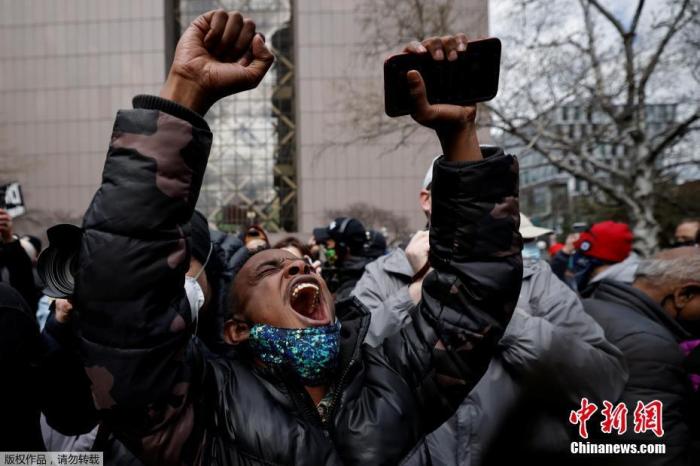Chinanews.com, April 21. According to a comprehensive report by Qiaobao.com, on the 20th local time, Drake Chauwan, the defendant in the Freud case in the United States, was convicted of three counts.
Law enforcement experts pointed out that successful convictions of police officers in fatal shootings in the United States are actually very rare.
And what will Xiao Wan face next?
Convicted of 3 charges, what will Xiao Wan face next?
The jury convicted Xiao Wan on the 20th of second-degree murder, third-degree murder, and second-degree manslaughter.
According to reports, Judge Pete Cahill said on the 20th that Xiaowan would not be sentenced until about eight weeks later.
Although Xiao Wan has been on bail since October last year, Cahill revoked Xiao Wan's bail after the sentence, so he will now be in jail awaiting sentence.
According to reports, the maximum sentence for second-degree murder can be up to 40 years in prison, the third-degree murder can be sentenced to 25 years in prison, and the second-degree manslaughter can be sentenced to up to 10 years in prison.
The three charges are superimposed, and Xiao Wan may face a maximum sentence of 75 years in prison.
Cahill will consider factors such as Freud's murder in front of a child and the dynamics of power between police and civilians to determine Chau Wan's sentence.
The three other policemen facing charges in the Freud case are expected to be tried together in August.
Shao Du, Thomas Lane, and Alexander Quinn were all charged with assisting and abetting second-degree murder and assisting and abetting second-degree manslaughter.
The picture shows the American people shouting excitedly on the street.
The trial ended, why is it so difficult to convict the police?
Many observers believe that this trial ruling will be one of the most important rulings in modern American history.
Because generally speaking, in the United States, the possibility of acquitting a police officer greatly exceeds the possibility of a conviction.
what is the reason?
According to an analysis by the US Overseas Chinese News Network, first, the law governing the use of force by the police is ambiguous.
The current standard regarding the use of force by the police comes from a resolution of the U.S. Supreme Court in 1989.
The resolution stipulates that the use of force must be "objectively reasonable", and lists the reasons why police officers make instant judgments about the required force under specific circumstances that are "tense, uncertain and rapidly changing."
According to Duke University Law School professor Brandon Garrett, this federal standard has been codified into state law by some state assemblies, and many independent police agencies have also codified it into their own policies and training standards.
But Philip Steison, a professor of criminal justice at Bowling Green State University, pointed out that the cases provided in the standard are both vague and irregular. In cases involving police officers, the reference facts provided "are often detrimental to both parties." ".
In addition, the police union is a "strong backstop."
Police officers charged with murder or manslaughter have a series of unique advantages for this group, which makes criminal charges against them more difficult to convict.
Garrett pointed out that in general, grand juries rarely prosecute cases that are of major concern.
Even after being prosecuted, many police officers will not plead guilty, and they often win the trial afterwards.
In many states, defense lawyers will argue that the use of force by their clients is reasonable in "momentary scenarios," saying that the situation at the crime scene is always unpredictable.
In addition, the police can often win the sympathy of the grand jury because the public will think that the work of the police is inherently dangerous.
This also allows the police to expand the scope of self-defense.

